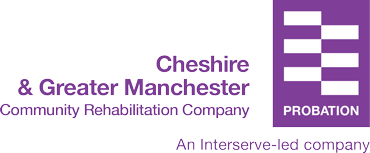Pioneering service supports rehabilitation
A pioneering service has entered its third year and has now worked with more than 2,000 service users to help them make positive changes to their lives.
The Integrated Healthcare in Custody and Wider Liaison and Diversion Service (IHCWLDS) is a partnership made up of the Cheshire & Greater Manchester Community Rehabilitation Company (CGM CRC), Mitie Care and Custody (Health) and the North West Boroughs Healthcare NHS Trust. The service was commissioned by the Greater Manchester Combined Authority and NHS England and its overarching aim is to support people who voluntarily agree to participate in the service to address identified vulnerabilities, support their wellbeing and reduce their future contact with the criminal justice system.
The first aspect of the provision involves healthcare professionals (HCPs) based in Greater Manchester Police’s seven custody suites who provide a round-the-clock service, 365 days a year. The HCPs respond to physical and mental health needs and assess fitness to be detained in custody, interviewed by police and released to court or the community.
The second strand of the service involves Liaison and Diversion staff based in custody suites and courts who meet people who have been arrested to assess them for a range of physical, mental health and social vulnerabilities. The team liaise with services, make referrals for support and provide reports to courts to help sentencers achieve the best sentencing outcomes.
The third element of the service involves Community Support Navigators managed by CGM CRC who work across Greater Manchester providing support to people who have asked for continued help in the community. They help service users to access and engage with the support they need to make positive change. Alongside the navigators are a team of Peer Mentor Volunteers who can provide further emotional and practical support based on their own lived experience of the issues service users face.
Laurie Beach, CGM CRC’s Peer Mentor Coordinator for the IHCWLDS, said: “The service is fantastic because it provides help and support when it is most needed.
“I’ve worked in probation for 10 years and know from personal experience that providing the right support early on can achieve fantastic results and help people avoid getting sucked into the criminal justice system.
“The area that we lead on works because it is delivered by people with lived experience. Evidence shows that people respond best when supported by someone who has walked in their shoes and fully understands the barriers that they face. That is why I’m so proud of the work my team does.”
Laurie has 14 peer mentors who work across Greater Manchester. The support they provide ranges from a weekly catch-up with a friendly face through to motivation and support attending meetings, such as with GPs, the jobcentre and drug misuse agencies.
Laurie added: “Peer mentors establish a powerful rapport by sharing their experiences and establishing a relationship based on equality, and one in which the service user knows they are volunteering their time. These are all powerful messages.
“The added benefit is that the experience also helps our mentors improve their own confidence and employability by gaining valuable training and work experience.”
Anthony Stafford and Jayne are two of CGM CRC’s peer mentors. Anthony spent years living in St Johns Gardens, central Manchester, and was a chronic alcoholic. Jayne has a personality disorder and was encouraged to become a peer mentor following her work a as a mental health volunteer.
Anthony, who attends a support group and has been sober for 18 years, said: “I am living proof that there is life after quitting drink or drugs or whatever the problem is. I spent a long time in black outs. My drinking was so bad homeless people in the park I lived in were telling me to get a grip.
“When I first quit it was incredibly difficult. I had sacrificed everything in my life for drink, so in the end drink represented my life. Stopping drinking created a vacuum that I had to fill and a grieving process I had to go through. I had to trust people telling me I would get better, and now that’s the role I can play for others.
“Recovery for me is not just about getting well, helping others get better is an integral part of it. I enjoy working with people from different walks of life, matching them to the right agency, helping them get to appointments, supporting them as their advocate and watching them grow.”
Jayne volunteers for the Wigan Multiple Agency Personality Disorder team and was encouraged to expand her experience with CGM CRC. As with all of the CRC’s volunteers, Anthony and Jayne undertook character checks, and received training and support in moving into the new roles.
She said: “I’m passionate about keeping people out of jail and about supporting people who are experiencing difficulties. My mental health deteriorated after my mother died when I was 23, in hindsight I can she’d been holding things together for me and things rapidly unravelled.
“My confidence fell apart and I barely left the house. I know what it feels like to be at rock bottom and to live with anxiety. I’ve learned how to manage the condition and if I can help others learn to cope then that makes me very happy indeed.”
The service works both with statutory and non-statutory cases and is looking for new recruits. People who want to learn more should email: [email protected]
